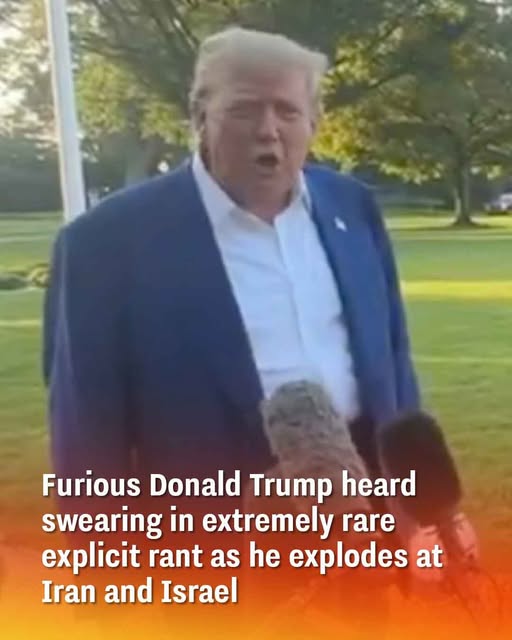On June 24, former U.S. President Donald Trump made headlines with a forceful statement regarding the ongoing conflict between Israel and Iran. Speaking to reporters ahead of his departure for the NATO summit, Trump expressed frustration over reported ceasefire violations in the region.
The moment was captured on video and shared by ABC News correspondent Rachel Scott, quickly gaining attention online. While Trump did not hold back in his criticism, his choice of words sparked a range of reactions. Some critics described his comments as lacking diplomatic tone, while supporters viewed his remarks as a sign of genuine concern over escalating violence.Prior to the exchange, Trump had posted on his social media platform urging de-escalation, particularly addressing Israel. “Do not drop those bombs,” he wrote in capital letters, cautioning against retaliation and calling for a measured response. He emphasized that further strikes could worsen the situation and called on leaders to act with restraint.
This message came after reports that Iran had launched a strike on a U.S. military base in Qatar. Trump described the incident as limited in impact, suggesting that it had been anticipated and minimized. He also claimed Iran had notified officials in advance, which he referred to as a “courtesy,” though this statement drew mixed reactions from foreign policy analysts and political commentators.In follow-up remarks, Trump also voiced disappointment in Israel’s response, suggesting that both sides bore responsibility for the rising tension. He referenced previous military efforts during his administration that he said had significantly weakened Iran’s nuclear capabilities, and reiterated his belief that renewed conflict would be counterproductive.
Trump’s remarks reflect his typically direct approach to foreign policy and national security. While some appreciate his forthright style, others caution that such rhetoric can complicate sensitive international matters.
As the situation in the Middle East continues to unfold, Trump’s comments have reignited debate over his role in shaping public discourse around foreign policy and international diplomacy.



